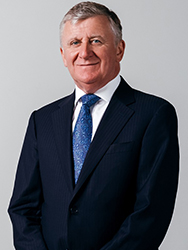 In an increasingly globalised world, Channel Islands businesses can position themselves to handle the needs of clients across many nations in the face of ever more complex tax and regulatory challenges
In an increasingly globalised world, Channel Islands businesses can position themselves to handle the needs of clients across many nations in the face of ever more complex tax and regulatory challenges
Given the intensifying regulation of financial services firms’ activities around the world, and constantly changing tax regimes across jurisdictions, is it possible for these organisations to operate globally? Or are they all really local firms operating under a global umbrella?
The ‘easy’ strategy for financial services firms considering how to position themselves is to become specialists at doing business in particular countries or regions.
However, the increasingly global nature of their clients – in terms of where they reside, where their businesses operate and the types of deals they want to do – means having a global offering is growing in importance.
There is an in-between approach – linking up with specialist partners in other parts of the world to conduct cross-border business co-operatively. In this way, a business can more easily maintain a presence in culturally diverse locations and stay abreast of kaleidoscopically changing compliance requirements.
But however firms get there, the need to be able to offer a global service, to have a global understanding of clients and to serve clients from anywhere in the world is growing. And that’s particularly the case for Channel Islands businesses, which are seeing more interaction with global clients than ever before.
To explore how businesses are approaching the challenge, we asked a selection of Channel Islands business leaders how several influencing factors – substance requirements, taxation and international client demands – are affecting their ability to operate globally.
Substance requirements
A question for many in the Channel Islands might well be how the EU’s 2019 substance requirements colour their views. Is it a challenge for islands-based businesses to comply?
“Absolutely not.” That’s the unequivocal answer from Mark Porter, Chief Executive of professional services firm Equiom, which has operations in Guernsey and Jersey and several other locations around the world.
“The introduction of economic substance and the need to be global are not mutually exclusive. Being a truly global business is first and foremost about where and how businesses engage with their clients, understanding the cultural factors that drive business and personal decisions, and offering clients a genuinely location-agnostic delivery model, whatever their requirements,” he says.
“The need to have economic substance in those locations is as critical for demonstrating to our global clients that our services are underpinned by a physical presence and on-the-ground expertise, as it is about satisfying regulatory and legislative obligations.”
At law firm Ogier, which has offices on both of the Channel Islands among its 10 across the globe, Partners Tim Clipstone and Simon Schilder agree.
“There’s a very strong group of administrators, managers, and corporate service providers, on these two islands. The introduction of substance requirements has effectively accelerated the position of the Channel Islands to becoming financial services hubs.”
Taxation
Given the low-tax environments of international financial centres, recent initiatives by the OECD and US President Joe Biden’s administration might appear to be disadvantageous.
That’s not necessarily the case, however. Both bodies’ proposed tax legislation are actually aimed at ensuring tax transparency and getting corporations and individuals to pay tax of the right amount, in the right jurisdiction.
This does not affect Channel Islands financial services businesses, as Anita Weaver, Director, Corporate Services, at wealth management and administration specialist Stonehage Fleming, explains.
“Wealth is international and many of our clients are global citizens,” she says. “While we have moved across borders as our clients and their interests have done so, it’s also important that we have been able to provide a high-quality service from a tax-neutral jurisdiction in order to enable those cross-border investments, both from a funds perspective but also for our family office clients.
“But I think it’s important to note, that it’s not just the tax-neutrality that is important for our clients. They are also looking for service providers that are in a stable and resilient jurisdiction that has robust infrastructure.
“The past 12 months have shown us that infrastructure is essential to the service that we can provide, and also that we have a high-quality workforce to be able to service different products that meet our clients’ needs.”
It is clear that what’s key is being able to meet the needs of international clients – which may indeed mean having an international presence.
Regardless, there are no taxation barriers to Channel Islands firms operating globally, with clients continuing to meet their tax obligations in the appropriate tax jurisdictions. The focus is on clients’ businesses, what they want to achieve and where they want to achieve it – not where they pay their tax.
 Supporting international clients
Supporting international clients
“If a client wants to structure a transaction in a certain way through one of our jurisdictions, our service providers here are more than capable,” says Daniel Hainsworth, Global Head of Corporate Services at Hawksford in St Helier.
“The regulatory environment here makes it very clear what needs to be done and generally clients accept the required steps and processes involved.
“Where you can meet little pockets of ‘international’ friction is from clients who are used to operating in other jurisdictions.
“These clients have to go on a learning journey, and some may ultimately choose to structure things in a different way because they haven’t yet managed to understand the process required to have true substance in a jurisdiction like ours.
"Jersey is more advanced with legislation to be compliant – or even market-leading – from a European tax perspective.”
Despite that, it is important for global financial services businesses operating in the Channel Islands to appreciate where clients are coming from when they look to do business there.
“Businesses need to understand the distinction between the ‘what’ and the ‘how’,” explains Equiom’s Mark Porter. “Firms can maintain a global outlook on the types of clients and client segments they engage with, and what capabilities are considered to be strategically viable.
“But ‘how’ those relationships are managed and how services are delivered will always be locally nuanced.
“Therein lie the dangers of the top-down culture that exists in many global firms – where insufficient weight or respect is given to those local market dynamics and cultural values,” he adds.
“By taking time to understand and respect local cultures, we can establish a global ethos centred on common objectives. We have got to be aware of cultural nuances, such as communication style, exchange of feedback and client interactions. Successful firms need to encourage openness and flexibility in order to strike the right balance.”
The future is bright
Looking forward, the islands’ financial services businesses have plenty of room to remain or become global in their scope, reach and offering.
Hawksford’s Daniel Hainsworth envisages a positive future. “There is nothing in tax legislation or substance requirements that will prohibit them,” he says. “A plethora of clients need our services, and that’s not going anywhere.
“Ultimately, new regulations create a relatively level playing field, so there isn’t jurisdictional arbitrage in the same way as there may have been from a purely tax-structuring perspective.
“It certainly isn’t a barrier for financial services businesses to be able to do it,” he adds. “What you need to do is make sure that, as with any other changes that exist out there, you have the right policies and procedures.
"That you have the right people keeping an eye out for legislative changes. That you implement those, you advise your clients of them and that you do everything that you’re supposed to do.
“It’s not rocket science. It just requires a controlled environment and a skilled workforce to be able to carry out the required roles in accordance with policies and procedures, and ultimately legislation.”
 Jersey: international finance centre with a global view
Jersey: international finance centre with a global view
Given the legislative changes and tax compliance requirements around the world, how does an IFC stay relevant to potential business? Joe Moynihan (pictured), CEO of Jersey Finance, explains.
How would you describe the global presence of Jersey, in terms of the international financial services and other business carried out in the jurisdiction?
For more than 60 years, our industry and partners have worked hard to cement strong political, commercial, cultural and educational ties with countries around the world, from the Gulf and the Far East to Africa and the US.
The political and economic stability found in Jersey, as well as our forward-thinking legal and robust regulatory infrastructure, enable us to provide certainty, confidence and transparency to global investors and set us apart from other IFCs.
These jurisdictional attributes, coupled with our industry’s resilience throughout the pandemic, are especially attractive to those from, perhaps, less stable jurisdictions.
What part do the regulatory and taxation regimes in Jersey play in attracting international business?
Our regulatory framework is one of the strongest in the world, and it’s designed to bring clarity and transparency to the world of finance.
As for taxation, the main driver has been our ability to maintain our position as a low-tax jurisdiction to the wider benefit of the island, while providing security and certainty through robust regulatory requirements for entities operating in and out of Jersey.
We are regularly assessed and have received numerous positive endorsements from supervisory authorities such as the Organisation for Economic Cooperation and Development, the International Monetary Fund and MONEYVAL (the Council of Europe’s monitoring body for anti-money laundering).
I believe Jersey’s resilience and the added certainty this can offer investors is a positive differentiator for our jurisdiction.
These factors are increasingly at the forefront of investors’ minds now as they seek an effective jurisdictional partner, and will no doubt continue to be a key consideration for multinational clients in the future.
How does Jersey stay relevant?
The most forward-thinking IFCs need to be resilient in this evolving environment. They need to embrace digital and product innovation and develop products and services that meet the changing demands and expectations of clients, especially next-generation clients.
What’s more, Jersey continually evolves and adapts to the external environment. For example, with a growing focus on sustainability, we launched a long-term strategy and vision for the finance industry to support and align Jersey more closely with global ambitions.